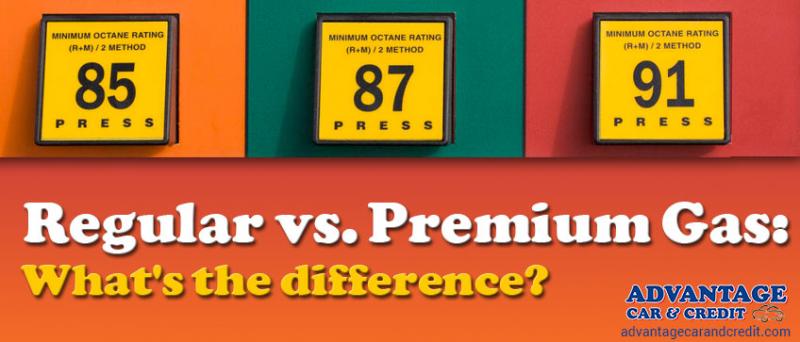by Justin Wallman - Posted 5 years ago

Is a gallon of gas just a gallon of gas? Well, if you’re talking in terms of volume, then yes. A single gallon of gas is just over six pounds of hydrocarbon-based fuel. However, what that fuel does makes a major difference in how your car performs and how much you pay at the pump. Keep reading to determine whether your car can stick to regular fuel or if you’ll need to upgrade to premium.
If your car manual states that premium gasoline is required, use it! You risk poor performance and possible engine damage by not adhering to these directions. If your vehicle is compatible with regular fuel, there is very little to be gained by using premium gas. The cost difference alone should be enough to make even the most casual driver pay attention to the details in these fuels.
The price difference between regular and premium gasoline can be quite large, in some cases 25%. In terms of national averages, this comes out to an additional 50 cents or more per gallon. For this reason, knowing whether your vehicle truly requires premium can save you significant amounts of money every year. What follows is an explanation of why some cars need premium gas.
Inside the cylinders, pistons are connected to the crankshaft, and its rotation eventually makes your wheels turn. The pistons can’t move by themselves – they need a push in the form of ignited fuel. Atomized fuel is sprayed into the cylinder and ignited by the spark plug. The resulting controlled explosion pushes the piston down, which is how they impart rotation to the crankshaft. The timing of this explosion is critical. Too early and the car will not develop enough power; too late and you get a phenomenon known as detonation.
Detonation is defined as the ignition of the fuel at a non-optimal time in the piston’s movement. It can be caused by poor timing as mentioned earlier, high cylinder pressure, low-quality fuel, or high cylinder temperatures. The resulting shockwave produces an audible sound, which is why detonation is more commonly known by the terms “knocking” or “pinging.” As you can guess, this uncontrolled explosion can hammer the engine with extremely high pressures that it was not designed for.
Preventing detonation can be done in several ways, but one of the most effective is through the use of high-octane premium fuel. Octane is a measure of a fuel’s “anti-knock” characteristics. The higher the octane, the higher the combustion temperature of the fuel. Since the fuel is harder to ignite, the risk of detonation is substantially reduced. Premium fuels in the United States are at or above an octane rating of 91, with regular gasoline established at a rating of 87.
A high-performance engine uses very high pressure inside the cylinders to produce higher power levels. Even in normal operation, these vehicles require premium fuel to prevent detonation. A car with more moderate performance will work just fine with low-octane or regular gasoline.
Cars of all performance levels are available for you to choose from at Advantage Car & Credit. Our online inventory features hundreds of pre-owned vehicles that are sure to catch your eye. We also feature a fully staffed garage to ensure that you can get top-level professional service at a discount. With six locations in the Dayton area, you aren’t too far from any of our facilities. Contact us today!